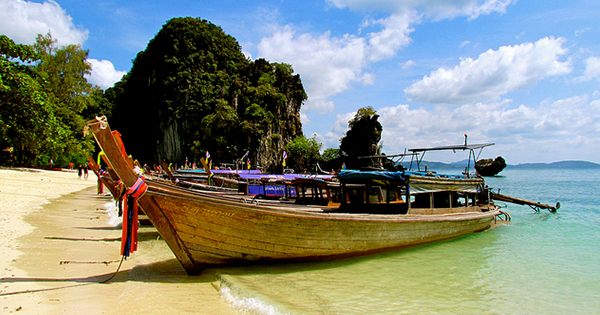
If you went on vacation this year, you might well have concluded that the world is becoming a more crowded place. It is, especially where you went. Tourist hotspots are overflowing with visitors.
Yes, the global population is increasing, but global tourism is growing at four times the rate. There were more than a billion tourists in 2014—out of a global population of some seven billion people—and the first four months of this year alone saw a 4-percent rise on last year’s numbers. Half a billion international tourists were expected for the May-August period this year.
That’s a lot of people, mostly heading to a few attractions. Europe is the number one destination, with more than 500 million visiting at the beginning of the year, the most numerous among them now Chinese rather than American. The sheer numbers of people heading to Rome’s Spanish Steps, strolling down Las Ramblas in Barcelona, or climbing the Eiffel Tower in Paris can be as overwhelming as it is lucrative.
Touristed areas certainly receive economic benefits, especially the poorer ones Southern Europe, like Greece and Turkey, whose economies depend on the throngs of holidaymakers. The majority of Chinese tourists choose Asian destinations; most Americans visit the Americas—businesses in the resorts of Thailand and Costa Rica are thriving, thanks to the boom in tourism. Globally, tourists spent more than a trillion euros last year. War and conflict in the Middle East and elsewhere only increase the concentration of visitors to safe destinations.
So is global tourism a good thing? Does mass travel on this scale still broaden the mind and reduce prejudice of other cultures and people?
Visitors to Phuket or Cancun, Daytona Beach or Magalouf are unlikely to be immersing themselves in local traditions and culture. That’s not necessarily bad—we all need to unwind and relax in the sun, particularly if we live in cold, rainy places. The number of tourists and their behavior, however, puts enormous pressure on the environment, culture, and lifestyles of local people. Destinations come to be defined by tourists rather than the people who live there. This is a particular problem for poor countries that lack the resources to manage the pressure. And mass tourism is now reaching into even more remote places, compounding the problem.
Tourism can be very destructive. The pollution of air travel, the strain on infrastructure, and the demands of tourists to eat certain foods, buy endangered or rare items, and indulge in culturally inappropriate practices result, at best, in a kind of homogenization of the planet. At worst, it utterly ruins sites, bringing exploitation and disease to the people who live there.
Wealthier countries are starting to take steps to control numbers. Venice is considering limited passes to St. Mark’s Square, while Barcelona’s new mayor has issued a 12-month moratorium on granting new hotel licences. Poorer countries are likely to continue to encourage tourists even at the expense of their attractions.
But there are notable exceptions. The secluded Himalayan kingdom of Bhutan, for example, mindfully protects its unique environment and culture by restricting its pricey annual tourist visas, the revenue from which goes to public improvements.
Ultimately, if governments are to avoid their attractions being devalued by unsustainable tourism, they need to impose restrictions on visitor accommodation, behavior, and numbers. Only then will such places remain hotspots in the long term.

